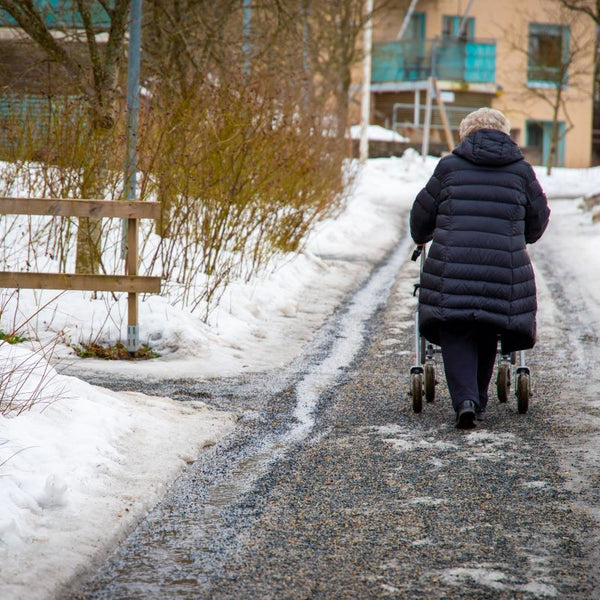The first time that we find ourselves as the person who has to be ‘in charge’ of the arrangements after someone close to us has died, can feel quite frightening.
We may find ourselves wanting to shut our door, hide away and try and pretend that the person hasn’t died at all, because it is all just too much to cope with emotionally, never mind the practical tasks that have to be done.
This article focuses on practical things, recognising that you will need to deal with things a bit at a time to give yourself time and space to express how you are feeling.
National Bereavement Service
You can call National Bereavement Service (NBS) for more information about any of this on 0800 024 6146 or visit www.thenbs.org
Everything you need to do when someone has died can be grouped under 4 headings:
1. Establish the cause of death and register the death
- If a doctor knows why someone has died and the cause of death is completely natural, they will issue a certificate giving the cause.
- This is often sent electronically to the Registrar of Deaths, where you will need to make an appointment to register the death and buy a Death Certificate.
- If the cause of death is unknown, the coroner will investigate. Provided the death is natural, you will be able to make an appointment to register with only a very short delay.
- If someone has died as a result of an accident or homicide, everything takes a little longer to investigate. The police or the coroner’s officer should keep you informed.
2. Taking care of the person who has died
- If someone has died in hospital, they will be cared for in the mortuary until you have decided on how you will arrange the funeral.
- If they have died unexpectedly or in a public place, a funeral director acting for the coroner will take the body to a public mortuary (which may be in a hospital).
- Most care homes and nursing homes will ask if you have a preferred funeral director and put this in their records and the home will call them to take care of the resident.
Making funeral arrangements
Although you can organise a funeral yourself, most people choose to use a funeral director. If the person who has died did not have a pre-paid funeral plan, you can choose which one to use.
- Do not feel at all embarrassed to ‘shop around’ when making funeral arrangements, although this may feel odd. Prices can vary between different companies by more than a thousand pounds.
- Call NBS if you are worried about how to pay for the funeral before you make any arrangements.
- The funeral director will not be able to make any arrangements until the death is registered or the coroner has given permission for the funeral to take place.
- If the person who died had enough money in the bank or a life insurance policy, they will usually make a direct payment to the funeral director on production of an invoice.
3. Inform people and organisations about the death
- Make lists – they will feel very long to start with. And delegate – you don’t have to do all the calls to family and friends. Most people close to you will want to help and this is a good way to use them.
Tell Us Once service
Tell Us Once is a free government service that allows you report a death when you need to tell central and local government agencies – it includes more than 20 organisations including DWP Pensions and Benefits, Council Tax and Driving License/Blue Badge.
The registrar will give you a unique code to do this online and you can also obtain a code from the registrar if you have an interim certificate from the coroner.
- There are now organisations which will also inform commercial organisations such as banks, insurance companies, utilities such as gas, electric and phone suppliers and social media companies such as Settl’d and LifeLedger.
- You do need to have proof of your own identity and proof of the death from the registrar or coroner before you can use these services, but they can save a lot of time sitting on the phone for hours whilst cancelling everything.
- Many banks and others also give you the choice of notifying them of a death online on their own sites.
4. Manage the property and finances of the person who has died
- This is called administering the estate. How this is done and who is responsible depends on whether the deceased person had made a valid will, giving their instructions. If the person who has passed away had entrusted you with Lasting Powers of Attorney, you may be familiar with their finances and property affairs.
- If there is a will, the people named in it as executors take responsibility. If there is no will, the task falls to the nearest relative or their representative. If there is no property (e.g. the person lived in rented accommodation) and fairly small amounts in the bank, you can usually deal with things using the banks own procedures and forms.
- However, the banks and other organisations that hold money, called asset holders, can ask you to obtain probate which is the legal process for obtaining permission to gather the money of the person who died, pay their debts, and then distribute anything remaining to the people entitled by law to receive it. The words differ slightly depending on whether there is a will or not.
Where to turn if you need advice or help
Usually, a quick conversation with the National Bereavement Service can help you understand which procedures you need to follow and whether this is something you can deal with yourself or if it would be wise to seek professional assistance.
Whatever the circumstances you find yourself in, NBS is here to give you the information you need to make an informed choice about what needs to be done next and how to achieve it. As a carer for elderly parents, remember that you are not alone and support is available.
Resources for family carers
You may also be interested in these other advice guides from Taking Care Personal Alarms:
- A guide to caring for elderly parents
- Tips for talking to your parents about their future care
- How to monitor elderly parents remotely at home
- Can a hospital force you to go into a nursing home in the UK?
- Talking about loneliness with elderly relatives
- Why caregivers need care too
- How to claim Carer’s Allowance





